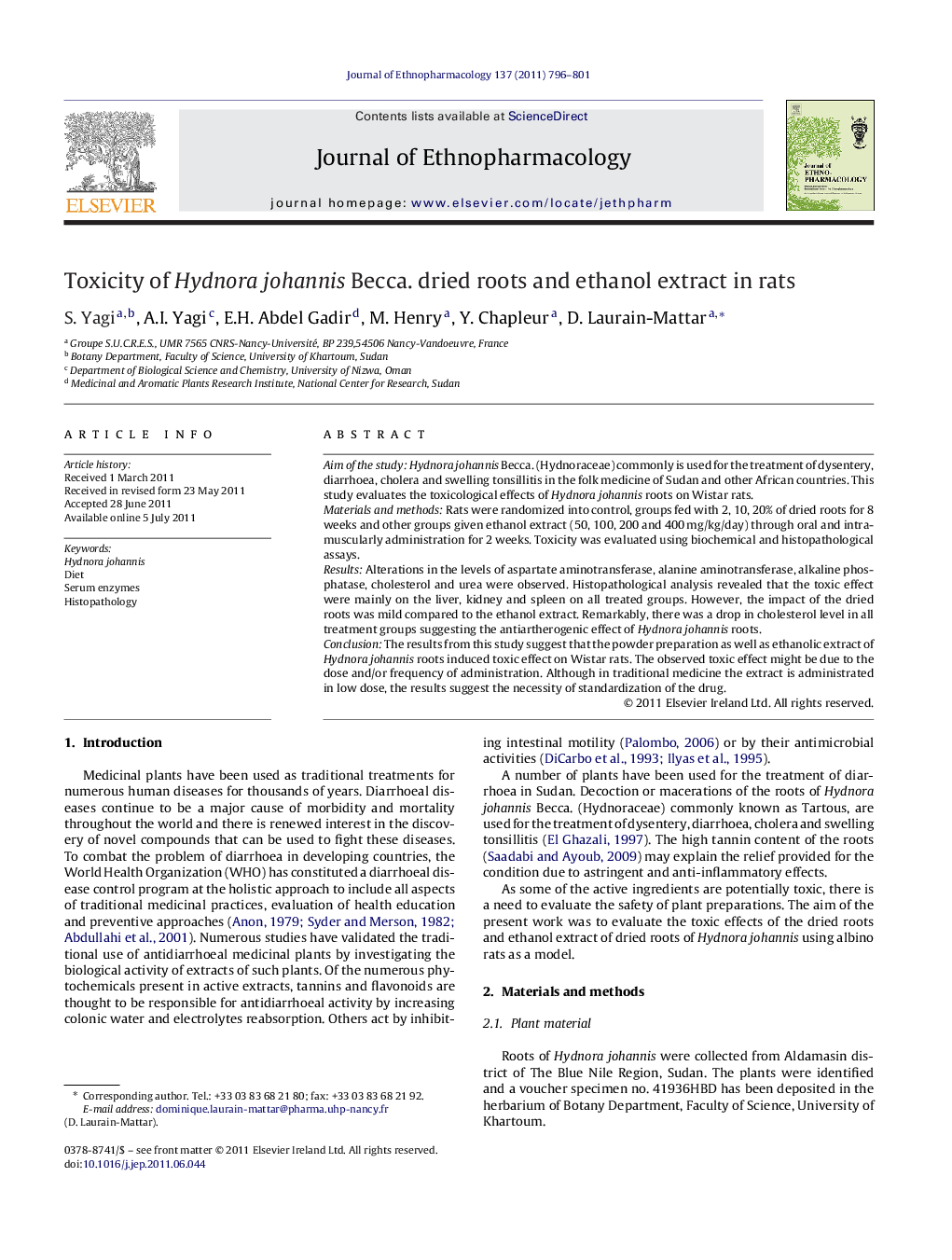| Article ID | Journal | Published Year | Pages | File Type |
|---|---|---|---|---|
| 5838822 | Journal of Ethnopharmacology | 2011 | 6 Pages |
Aim of the studyHydnora johannis Becca. (Hydnoraceae) commonly is used for the treatment of dysentery, diarrhoea, cholera and swelling tonsillitis in the folk medicine of Sudan and other African countries. This study evaluates the toxicological effects of Hydnora johannis roots on Wistar rats.Materials and methodsRats were randomized into control, groups fed with 2, 10, 20% of dried roots for 8 weeks and other groups given ethanol extract (50, 100, 200 and 400Â mg/kg/day) through oral and intramuscularly administration for 2 weeks. Toxicity was evaluated using biochemical and histopathological assays.ResultsAlterations in the levels of aspartate aminotransferase, alanine aminotransferase, alkaline phosphatase, cholesterol and urea were observed. Histopathological analysis revealed that the toxic effect were mainly on the liver, kidney and spleen on all treated groups. However, the impact of the dried roots was mild compared to the ethanol extract. Remarkably, there was a drop in cholesterol level in all treatment groups suggesting the antiartherogenic effect of Hydnora johannis roots.ConclusionThe results from this study suggest that the powder preparation as well as ethanolic extract of Hydnora johannis roots induced toxic effect on Wistar rats. The observed toxic effect might be due to the dose and/or frequency of administration. Although in traditional medicine the extract is administrated in low dose, the results suggest the necessity of standardization of the drug.
Graphical abstractDownload high-res image (148KB)Download full-size image
